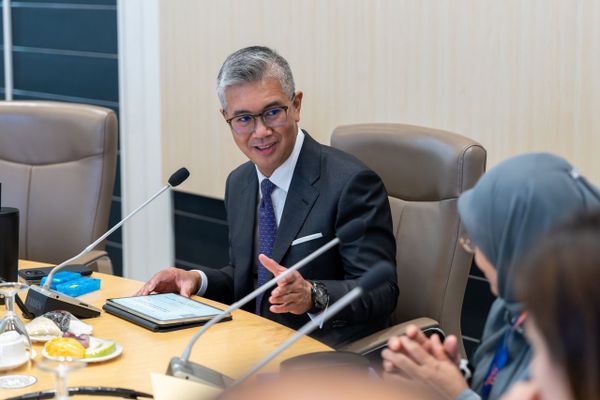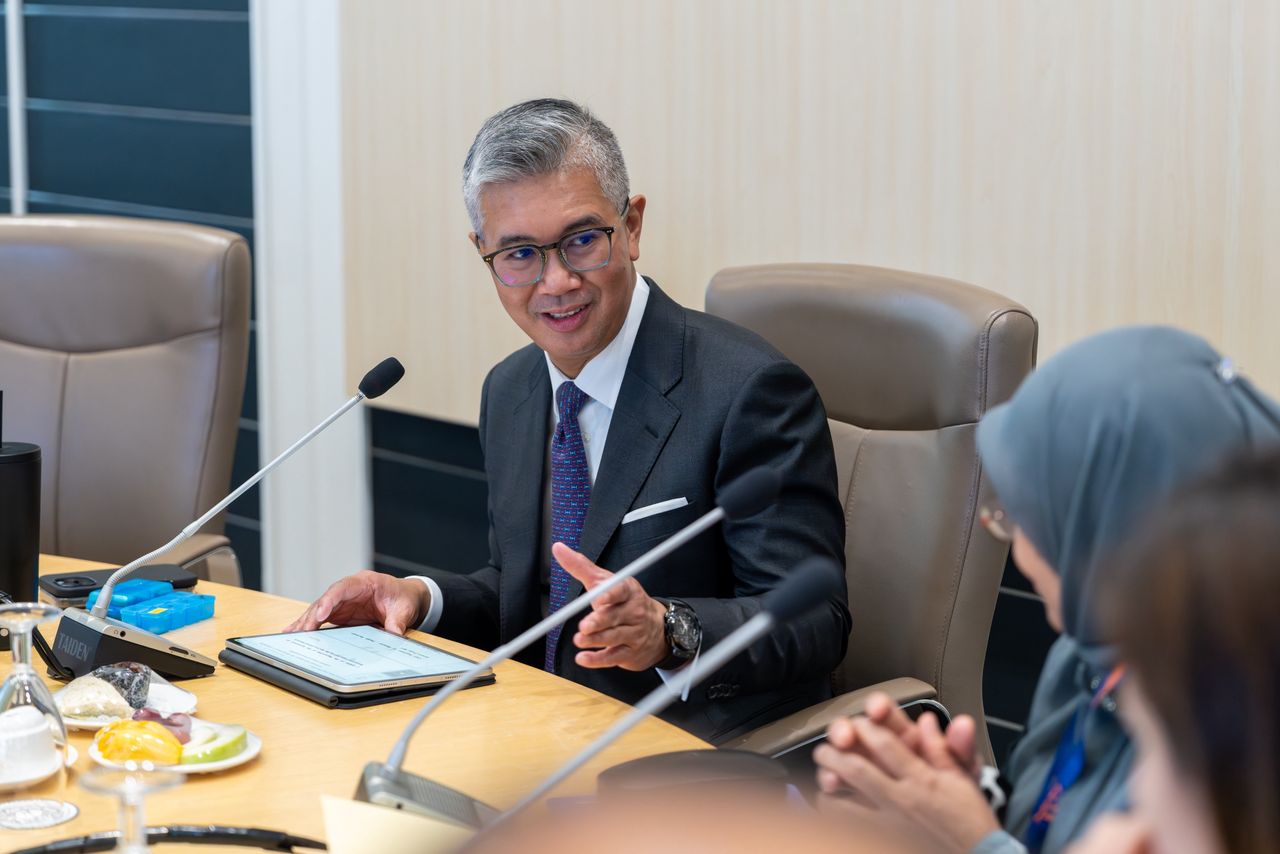KUALA LUMPUR, Aug 7 — Investment, Trade and Industry Minister Tengku Datuk Seri Zafrul Abdul Aziz has reiterated that all purchase and investment commitments offered by Malaysia in the tariff negotiations with the United States are commercial dealings by private companies and government-linked companies (GLCs), without involving any public funds or increasing the country’s fiscal burden or debt.
He said that this approach allows the government to ensure the people’s welfare are protected and preserve the country’s fiscal sovereignty.
“Although the total amount seems large, in reality, these commitments are implemented in phases over five to ten years. They are also commercial transactions and investments by Malaysian companies and GLCs, not a one-time outflow,” he said during a question-and-answer session in the Dewan Rakyat today.
He was responding to a question from Lim Guan Eng (Harapan-Bagan), who wanted to know the measures the government has taken to achieve the now publicly known 19 per cent tariff negotiation outcome and the concessions Malaysia offered to the US.
Tengku Zafrul said the negotiations — led by his ministry with the support of Prime Minister Datuk Seri Anwar Ibrahim, other ministries and agencies, think tanks, and the private sector — successfully lowered the countervailing tariff rate to 19 per cent from 25 per cent, effective today.
“This achievement puts Malaysia on a par with major Asean countries and once again proves our country’s ability to engage in effective diplomacy on a global level,” he said.
He added that the government’s approach in the negotiations was based on strategic interests and national dignity, without compromising key policies including Bumiputera equity requirements in strategic sectors, halal standards as determined by the Islamic Development Department (Jakim), control over local vendors, and the retention of control in the automotive and critical minerals sectors.
According to Tengku Zafrul, the main purpose of the negotiations was to balance the trade deficit between Malaysia and the US, hence a whole-of-nation procurement was taken into account.
“The commitments involve purchases and investments by private companies and major GLCs totalling US$150 billion (RM634.8 billion) in the semiconductor, aerospace, and data centre sectors over five years, as well as US$19 billion for the purchase of Boeing aircraft in stages by Malaysia Aviation Group until 2035.
“In general, these procurements are carried out in phases over five to 10 years. On average, over 10 years, the annual commitment amounts to about 8 per cent of Malaysia’s gross domestic product or 13.5 per cent of the country’s private expenditure in 2024,” he added.
From an economic standpoint, the total amount is equivalent to the annual operating expenditure of major corporate and GLC entities in the country, whether for raw material purchases, technology investments, or asset upgrades.
Tengku Zafrul also said Malaysia has offered tariff concessions by eliminating or reducing tariffs on 98.4 per cent of US product tariff lines exported to Malaysia, including industrial and agricultural products.
“Of that total, 60.4 per cent will be subject to zero duty rates, while the rest will see duty reductions of up to a maximum of 15 per cent. The zero-duty rate applied to 60.4 per cent of these tariffs is also significantly lower compared to several other countries subjected to similar countervailing tariff rates,” he explained.
Tengku Zafrul said Malaysia also facilitated the implementation of several non-tariff barriers, including halal certification in accordance with Jakim regulations, facilitation of US meat and dairy exports, as well as improvements in monitoring and compliance with labour, environmental, and intellectual property standards.


